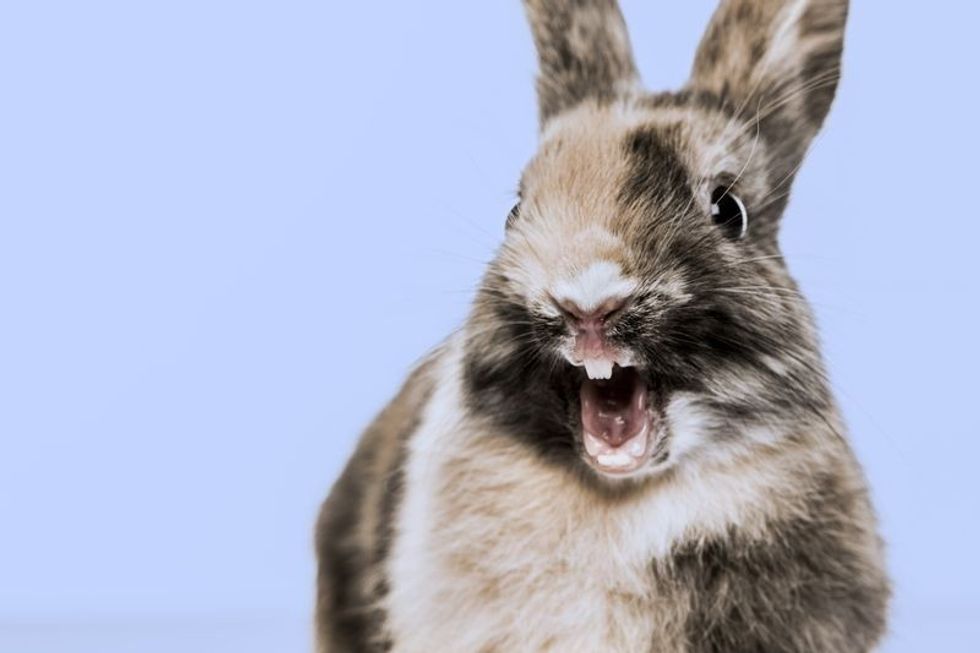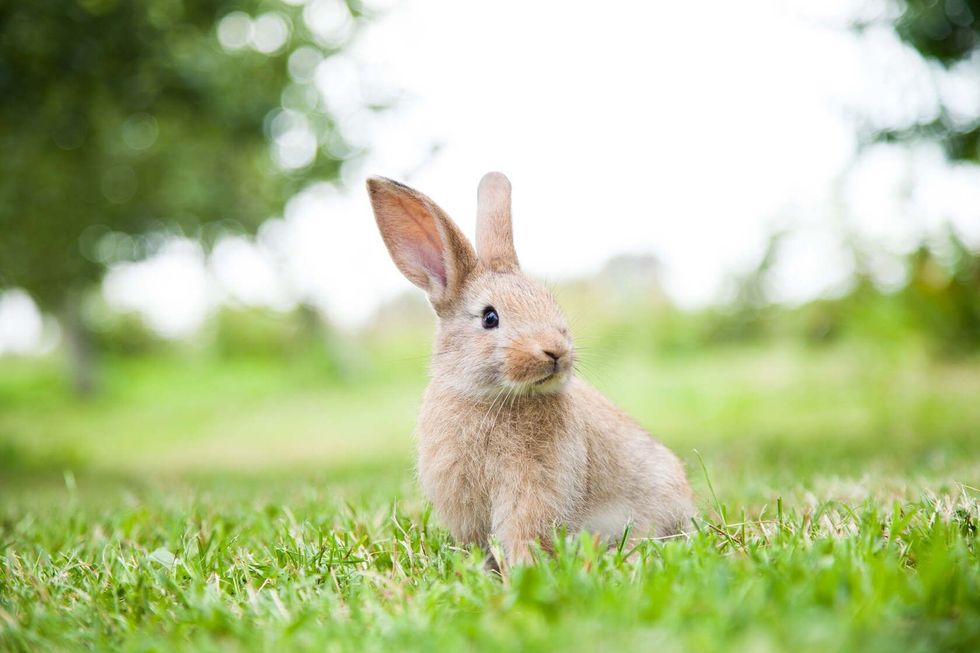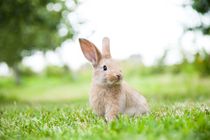Rabbit Bite: Tips And Steps To Follow For Treatment If You're Bitten

Rabbits make great house pets as they are fluffy, docile, and always ready to play!
But what do you do when your pet rabbit is frightened or scared? Did you know that these animals may bite if they feel uncomfortable?
There are many reasons why a pet rabbit may bite its owner. Although fluffy pet rabbits look cute and easy to handle, it can be quite difficult to calm down an aggressive or territorial bunny, especially a male one.
It is very normal for these animals to bite humans when they are feeling negative emotions as a way to express themselves.
Be careful when these gentle animals seem agitated because they can deliver painful bites. Read on to learn more about rabbit bites, how to know if they are serious, and when to consult a doctor about a rabbit bite.
Do rabbits bite?
A rabbit may seem like a cute and gentle pet, which this animal is for the most part. However, like any other animal, a rabbit inhabits different feelings and emotions. Biting to express negative emotions is one way of showing them.
Rabbits may either nip, chew or bite. Nipping means playfully and gently biting on a person's skin, whereas biting usually has an element of aggression and is done in anger.
Rabbits may either bite or nip for a number of reasons.
It is also normal for them to chew idly on anything in reach if they feel stressed or experiencing fear.
If you have recently adopted a bunny into your home and it is still not used to its surroundings, handling it too much or picking it up improperly may cause it to lash out in fear and attack you.
Rabbits are usually quite shy and scared in nature, which can cause them to clam up and not be willing to interact with their owners until they feel comfortable in their new environment.
Noisy surroundings or living with other, unfriendly pets may also cause them stress, which they may exhibit in unhealthy ways like biting anyone who comes too close to them. Living in a safe, peaceful environment is extremely important for rabbits to stay healthy.
Giving them their own space to relax and play in is a good idea. However, make sure they stay within sight as other aggressive pets can attack them like cats and dogs. Rabbits are also at risk of eating toxic plants.
A rabbit may also become bored and frustrated if it is housed in a cage too small for it, or if there are too many bunnies in one cage. Make sure to keep a rabbit in a cage large enough, with enough toys, water, and decorations.
If a rabbit feels constricted or suffocated due to lack of space, it will most definitely bite you in frustration once it is let out or if you attempt to handle it.
Rabbits that are ill or injured may also bite anyone who comes too close. If your normally calm and happy bunny suddenly lashes out or shows signs of aggressiveness, take it to the vet as there are chances it could be suffering from some hidden illness or have a broken limb that has gone unnoticed.
Rabbits may also simply nip your fingers if the scent of food is lingering on them. Hungry rabbits may trace the scent of food back to your fingertips if you have just eaten and go in for a bite!
It's always good to get your rabbit neutered. Unspayed rabbits experience more territorial feelings of aggression and may take their anger or fear out on you if they don't have enough space because of hormones.
They are also not good with other rabbits and may get into a lot of fights. If you have two or more rabbits kept together, it is very important to get them neutered after they have bred a few times or before if you do not want any litters.
This is important for male rabbits. It will greatly decrease their feelings of aggression and make them much easier to play and bond with.
Occasionally, many people also adopt two males or two females and notice them fighting. It can be a bit difficult to differentiate between female and male bunnies, so mistakenly adopting one of each could be the case!
In this situation, make sure to get them spayed as soon as possible to prevent an overpopulation of bunnies, and help them get along well with each other.
Do rabbit bites cause rabies?
Unlike dogs, it is very unlikely that rabbits have rabies. If the rabbit is a pet, it is highly unlikely that it can transmit the rabies virus. Bred rabbits cannot host the virus without succumbing to it.
If your pet rabbit bites you, do not panic. Make sure that you are up to date on all your shots, especially the TT vaccine for tetanus. Rabbits transmitting rabies is quite rare, however, it is always good to be on the safer side.
On the other hand, if a wild rabbit bites you then it may be cause for concern, and a good idea to seek medical care immediately. Wild rabbits may have been bitten by larger predators hosting the virus.
It is very unlikely that they survive once the virus enters their bodies, however, there is still a slight chance of the infection being present in their bodies.
If you are able to capture the rabbit in question, getting it tested at the vets for rabies is easy enough. If not, then visit the hospital as soon as possible and get the wound treated and disinfected, in case there are any signs of the infection.
On the other hand, rabies is not the only rabbit bite disease you should worry about if bitten by a rabbit. Rabbits can host a number of other diseases, many of which cannot be transmitted to humans. There are still a few which you should get tested for if you are bitten in case of infection.
Pasteurellosis: This bacteria can be found in the respiratory tracts and mouths of smaller animals, including rabbits. If transmitted, it takes one to three days to show symptoms.
The site of the wound swells up, gives off a bloody discharge, and is often accompanied by excruciating pain. The infection may spread throughout the nearest limb if not kept in check, causing swelling and joint pain, similar to arthritis.
It can also create respiratory problems such as shortness of breath, cough, cold, and chest pain. This infection may also cause a high fever.
Tularemia: This disease is quite rare, but exhibits serious symptoms if caught. It is also known as rabbit bite fever, and if caught early can be treated fairly easily using antibiotics.
It typically attacks a person's skin, eyes, respiratory system, and lymph nodes. It is accompanied by swollen lymph nodes, vomiting and diarrhea, inflamed tonsils, pain in the abdomen, and the formation of mouth ulcers.
Tetanus: Tetanus can be transmitted to humans through a rabbit bite if it occurs out in the open.
Dirty soil, feces, or other unwanted materials can make their way into the bite and can cause tetanus if an infected rabbit bites a person. Tetanus can cause muscle spasms and pain, cramping of the jaw, unnatural body stiffness, fever, excessive sweating, and migraines.
If you are bitten by a wild rabbit or out in the open and have not received your latest TT shot, then report to the nearest hospital immediately to seek treatment for the bite.

What To Do If Bitten By A Rabbit
Rabbits, especially pet rabbits, usually have cleaner mouths than most animals as they live on a purely herbivorous diet. However, this still means that they can transmit bacteria which can affect the human body in unsavory ways, or lead to infection. An untreated bite could hurt a lot, as well as damage your health greatly.
If a rabbit bites you and draws blood, then make sure to first clean the wound thoroughly. Wash gently with warm water and soap, and pat it dry with a towel.
Apply an antibiotic spray or medical cream to the wound and wrap it securely in a bandage, so that no outside contaminants can make their way into the wound.
These steps are enough if the bite is not deep or does not draw too much blood, however, there are a few steps you may need to take in case the bite is very deep. Also, it is important to look for signs or symptoms that the bite is infected.
Signs that the bite has become infected include swelling, oozing pus, a bloody discharge, and pain.
You should seek medical attention if you have not taken your latest recommended tetanus shot and the bite was from a wild rabbit. There is a chance you could contract rabies.
If you are worried that the rabbit that bit you has been infected with a dangerous disease, then contact your nearest doctor or hospital immediately, and get the bite examined.
If such bacteria are left to spread freely through the body, it can cause massive damage which can even be life-threatening if not kept in check. Getting the right medical care is very important in this situation.
Wild rabbit bite treatment is slightly more intensive than for a bite from a pet rabbit, as the chances of a wild rabbit hosting a disease dangerous to humans are greater.
An owner can do a few things to train a rabbit to be handled more and decrease its territorial behavior and aggression. Try to spend time with your bunny, but not actually handling it if it is not ready.
Your presence may make it curious, and your bunny will approach you on its own. Use treats to reward this behavior, which will encourage it to spend more time with you!
Treats can help a bunny to see you as a provider of food and care, which will make it warm up to you a lot quicker. You can also give a bunny toys to play with to stimulate its mindset.
Simply spending time near a rabbit while it plays with its toys could be a great bonding experience for both you and your pet. This will also stop its biting habit, as it will foster less negative emotions.
If a pet bunny has already bitten you before, make sure that you observe its body language and the signs it gives before it bites. If you become aware of what your pet rabbit's aggression looks like, then you can prevent potential bites in the future and save your health!
Aggressive body language may look like baring its teeth, its pupils dilating, its tail sticking out straight, and its ears standing up to attention.
If you have an aggressive bunny and are trying to train it, then remember that punishing its aggression will only make it more violent. Bunnies respond well to love and care, and rewarding good behavior is the best way to get through to aggressive pet rabbits.
Punishing them will only hurt them and increase their fear of humans, decreasing your chances of trying to bond with them.
If a rabbit unintentionally hurts you while nipping, then make a loud noise every time it does so. This will sensitize it to the fact that nipping you hurt, in which case it will nip you softer or more gently in the future.
Nipping is completely normal behavior, so don't worry if your rabbit is getting too nip-happy. It is the biting you should be more worried about.
You can also shake a loud object every time a rabbit engages in bad behavior, which will demotivate it from engaging in such behavior again.
What does a rabbit bite look like?
Rabbits may either bite or nip your skin, which will feel and look different from each other. A nip is a small, playful version of bites, where they will pull on your skin with their teeth to get your attention or just as a form of affection.
These feel like someone is gently pinching your skin, and may only result in slight redness.
In contrast, bites are given when a rabbit feels scared, neglected, or is all hopped up on hormones.
A rabbit bite can be extremely painful.
A rabbit opens its mouth wide and clamps down on a person's skin when biting, with much more force than a friendly nip would have. They tend to dig their teeth in deep and keep them clenched for a long period of time, which can cause a lot of distress to the victim and hurt for a long time.
Because of their herbivorous diet, rabbits have extremely long and sharp teeth which are useful for cutting up tough leaves and greens, and being on the receiving end of these teeth can cause a lot of pain.
Their teeth can sink into the skin very easily, and cause deep bites that can take days to heal. The wound may become red and swollen, and stay that way for quite some time.
The sharpness of rabbit teeth also draws a lot of blood. These bites are prone to becoming infected, in which case they will swell up more and ooze white or green pus.
Immediately washing and treating a bite will greatly decrease improve its appearance to reduce the chances of scarring. Make sure to keep the bite area clean as well as change the dressing on the wound regularly.
We Want Your Photos!
More for You
See All
Bachelor of Arts specializing in Economics

Tanya ParkhiBachelor of Arts specializing in Economics
Tanya is a skilled content creator with a passion for writing and a love for exploring new cultures. With a degree in Economics from Fergusson College, Pune, India, Tanya worked on her writing skills by contributing to various editorials and publications. She has experience writing blogs, articles, and essays, covering a range of topics. Tanya's writing reflects her interest in travel and exploring local traditions. Her articles showcase her ability to engage readers and keep them interested.
Bachelor of Arts specializing in English, Bachelor of Education specializing in the Language Arts

Amatullah GulbargawalaBachelor of Arts specializing in English, Bachelor of Education specializing in the Language Arts
Amatullah is a passionate student pursuing a Bachelor of Arts and Bachelor of Education from Ashoka College of Education. With a keen interest in literature, she has excelled in elocution competitions and is an accomplished writer. She has completed courses like "History of English Language and Literature", "Introduction to Western Political Thought and Theory", and "Development of Soft Skills and Personality". In her free time, Amatullah enjoys reading books and writing poetry.
Disclaimer
1) Kidadl is independent and to make our service free to you the reader we are supported by advertising. We hope you love our recommendations for products and services! What we suggest is selected independently by the Kidadl team. If you purchase using the Buy Now button we may earn a small commission. This does not influence our choices. Prices are correct and items are available at the time the article was published but we cannot guarantee that on the time of reading. Please note that Kidadl is a participant in the Amazon Services LLC Associates Program, an affiliate advertising program designed to provide a means for sites to earn advertising fees by advertising and linking to Amazon. We also link to other websites, but are not responsible for their content.
2) At Kidadl, we strive to recommend the very best activities and events. We will always aim to give you accurate information at the date of publication - however, information does change, so it’s important you do your own research, double-check and make the decision that is right for your family. We recognise that not all activities and ideas are appropriate for all children and families or in all circumstances. Our recommended activities are based on age but these are a guide. We recommend that these ideas are used as inspiration, that ideas are undertaken with appropriate adult supervision, and that each adult uses their own discretion and knowledge of their children to consider the safety and suitability. Kidadl cannot accept liability for the execution of these ideas, and parental supervision is advised at all times, as safety is paramount. Anyone using the information provided by Kidadl does so at their own risk and we can not accept liability if things go wrong.
3) Because we are an educational resource, we have quotes and facts about a range of historical and modern figures. We do not endorse the actions of or rhetoric of all the people included in these collections, but we think they are important for growing minds to learn about under the guidance of parents or guardians.







